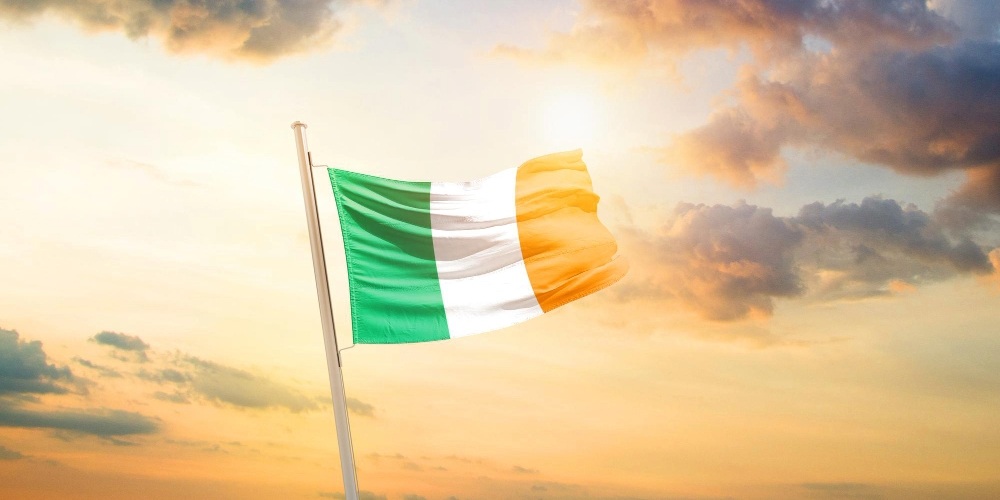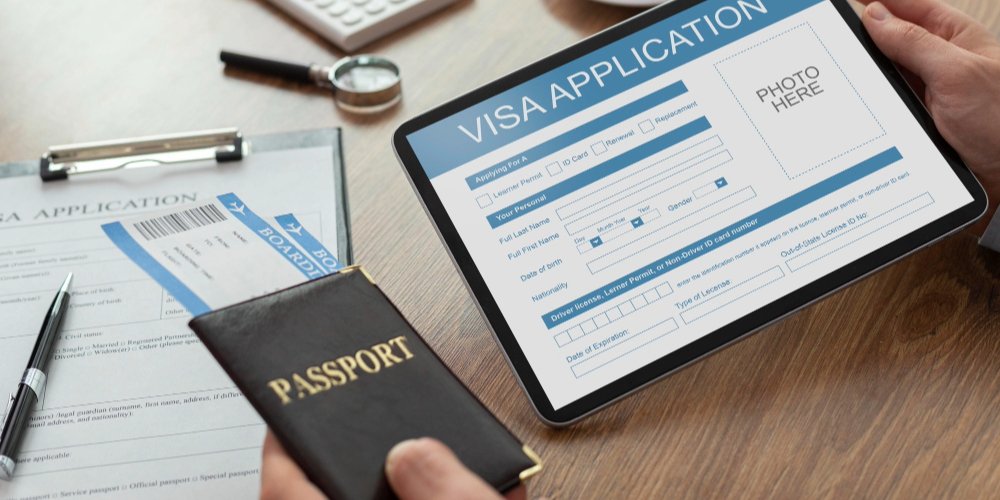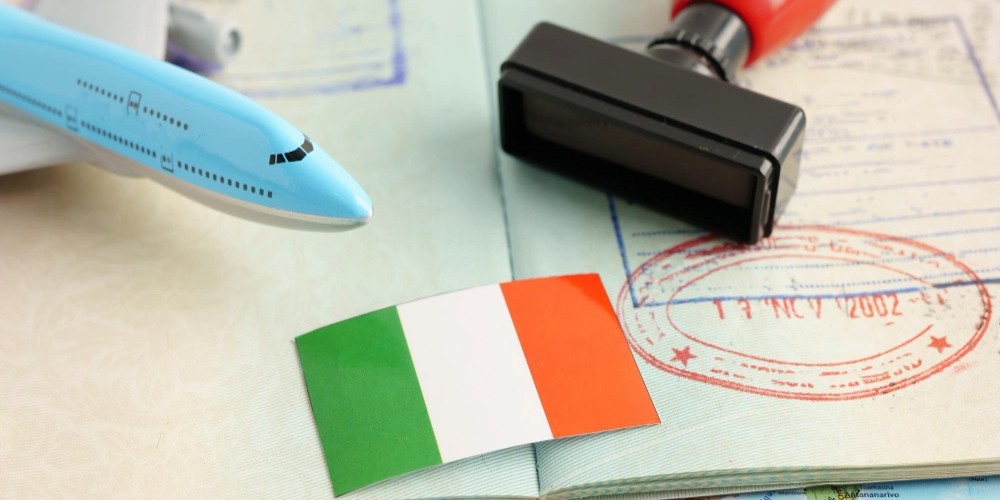Planning to study in New Zealand from Nepal? We will guide you through the whole process, whether it be admission, scholarships, universities, or anything else you may need!


Ireland has some of the top universities in the world, including Trinity College Dublin, University College Dublin, and University College Cork. These universities offer strong programs and degrees, with a focus on innovation, providing international students with quality education and global opportunities.
Ireland is famous for its rich Irish culture, from its music, dance, and festivals to art, literature, and history. It’s also known for its lush green countryside and iconic landmarks such as the Cliffs of Moher and the Giant's Causeway. It is a place where international students can learn and experience something new outside the classroom.
Ireland is a member of the European Union, and studying in Ireland offers easy access to the rest of Europe. With an Irish student visa, you can explore nearby countries and experience different cultures during your studies. Moreover, an Irish degree also opens doors to careers across the EU, providing further international career opportunities.
According to the Global Peace Index, Ireland ranks as the second most peaceful country in the world. Its friendly people and welcoming and supportive community make this country a perfect choice for international students, and it can feel like home here.
Ireland offers great research opportunities, especially in fields like science, technology, and healthcare. Universities collaborate with modern industries, providing opportunities for foreign students to work on exciting projects and connect with experts both locally and globally.
After graduation, Ireland's universities offer international students a 2-year work visa, where students can gain valuable work experience within their fields of study. It has a 4.8% GDP growth and is also home to thousands of multinational companies, including Google, Microsoft, Apple, IBM, and Facebook, providing excellent career opportunities for graduates in various industries.
Although Irish is an official language of Ireland, over 90% of people are English speakers. It helps international students to communicate effectively in English with locals and natives without the need to learn Irish, which is beneficial in both social and academic situations.
According to the Human Development Index (HDI) report, Ireland is ranked in the top five for a higher quality of life, with an HDI score of 0.950. It is also a young country, with one-third of the population under 25 and a literacy rate of 99%. As a result, this place is perfect not only for an excellent education system but also for a higher standard of living, making it an excellent choice for international students.

If you want to study in Ireland from Nepal, you must first understand several eligibility requirements before applying for a student visa. Here is a list of requirements you must know:
Personal and Identification Documents:
Academic and Application Documents:
English Language Proficiency:
Financial and Support Proof:
Health and Legal Requirements:
Visa and Travel Requirements:
These are the basic requirements needed to study in Ireland; additional documents may be required depending on your university. For any further information or confusion, please visit Search Education and speak with one of our counselors. We have helped over a thousand students with their study abroad programs, from documentation to the visa application process, ensuring we meet all requirements for international education.

If you want to study in Ireland, then you must apply for a long-term study visa at least 3 months before your planned travel date to Ireland. Likewise, if you plan to visit another state before arriving in Ireland, then make sure that you have the required visa for that country stamped in your passport before submitting your application for an Ireland student visa.
Here is a complete step-by-step guide for applying for an Ireland student visa:
STEP 1: Select your preferred course, university, or college and submit your application.
STEP 2: Get an offer letter from the institution you have chosen.
STEP 3: Gather all required documents (eg, transcripts, passport, SOP, LOR, and other required documents).
STEP 4: Visit the Irish Immigration Service Delivery website and fill out the online visa application form.
STEP 5: Pay the visa application fee (Approx: €60).
STEP 6: Submit your completed application along with required documents and biometric information to the Visa Facilitation Service (VFS) located at: Chhaya Center, Chhaya Devi Complex, Thamel, Kathmandu.
STEP 7: Wait for the Visa processing time (at least three months before your intended travel date).
STEP 8: Prepare for Departure by arranging travel, accommodation, and any additional requirements.
If you need further assistance or have any questions about applying for a student visa to Ireland from Nepal, please visit Search Education. Our expert counselors will guide you through every step of the journey, from the application process to your departure.
The total cost to study in Ireland from Nepal varies depending on the chosen field of study, program, and institution. Here is the table showing the total cost of studying in Ireland from Nepal.
Program Level | Tuition Fee (Euro) | Tuition Fee (NPR) |
Undergraduate Program | €9,000 – €40,000 per year | NPR 12,00,000 - NPR 60,00,000 per year |
Post Graduate Program | €9,000– €35,000 per year | NPR 12,00,000 - NPR 50,00,000 per year |
PhD | €9,000 - €35,000 per year | NPR 12,00,000 - NPR 50,00,000 per year |
Note: You should also pay approximately €3,000 per year for student services, such as examination entry and support for clubs and societies.

The cost of living in Ireland is a bit higher than in most European countries. Students living in Dublin can expect to spend between €1,100 and €1,800 per month, while Cork can expect to spend between €860 and €1,400 per month. The table below shows the estimated cost of living in Ireland as an International student.
Expense | Estimated Cost (NZD) |
Accommodation | Shared Accommodation: €400 - €700 per month
Private Rental: €700 - €2,500 per month |
Utilities | €80 - €260 per month |
Food and Groceries | €250 - €350 per month |
Transportation | €40 - €120 per month |
Clothes | €100 - €250 per month |
Internet and Mobile | €50 - €100 per month |
Entertainment | €60 - €100 per month |
Miscellaneous Expenses | €100 - €400 per month |
Health Insurance | €150 - €300 per month |
Textbooks and Study Materials | €50 - €80 per month |
Student Services Fee | Approximately €3000 per year |
Ireland is the best study destination for international students due to its high-quality education system, safe and welcoming environment, research opportunities, and higher quality of life. Below is a list of popular courses you can choose to study in Ireland:
Here is the list of universities based on the QS World Ranking 2025:
University List | University Rankings |
Trinity College Dublin, The University of Dublin | 87 |
University College Dublin | 126 |
University College Cork | 273 |
University of Galway | 273 |
Dublin City University | 421 |
University of Limerick | 421 |
Maynooth University | 801-850 |
Technological University Dublin | 851-900 |
Yes, there are several scholarship opportunities available for Nepali students to study in Ireland. Here are some popular scholarships:
There are two intakes available for international students who want to study in Ireland:
Yes, the Irish government allows international students to work while studying. You can work up to 20 hours per week during class time, and 40 hours per week on holidays. To work legally in Ireland, you must:
After studying in Ireland, you can stay under the Third Level Graduate Scheme for up to two years. You will have extensive working opportunities in the IT, Engineering, and Healthcare sectors with leading global companies including Google, Apple, and Facebook. The salary package ranges from approximately € 30,000 to € 60,000 for IT and € 25,000 - € 55,000 for Engineering posts.
You must show your English proficiency test to get an offer letter from the desired institution. If you are not interested in IELTS, then other English language tests like TOEFL, Duolingo and PTE are available to demonstrate your English skills.
Yes, one may apply for permanent residence in Ireland via the Long-Term Residency scheme. An applicant will have to have been legally resident in Ireland for at least 5 years, or 60 months, on the right permits and have worked during that period. You would need to be of good character and not have caused the police any trouble, nor be a burden on the state. Any time spent outside Ireland in those 5 years will not count toward your PR application.
Ease of finding a job in Ireland will depend on your qualification, skills, communication ability, and experience. The Irish government invests hugely in areas like technology, health, and business. There are also many large corporations, including Google, Apple, Facebook, and Amazon. So, it's always a good idea to improve your skills, network with locals, learn about the job market, and being fluent in English will make it easier to find work.
You can work up to 20 hours a week during academic time and 40 hours a week during holidays.
The interview requirement depends on the university, your chosen course, and the documents you have provided. Generally, an interview is not needed for most Irish universities, but it is best to research the university admission criteria and documentation requirements.
The visa processing time typically takes between 4 to 8 weeks from the date you have submitted your documents. However, it is dependent on the documents you provide and the visa office that handles your application. During peak months (like July and August), it can last up to two months.
After graduation, you can live up to 2 years to gain valuable work experience based on your chosen fields.
Yes, you can study in Ireland even if you have a gap in your education. Irish Universities accept a study gap if you provide a clear explanation and any supporting documents in your application.
The GPA required for study in Ireland varies depending on the university and courses chosen. For both bachelor's and master's programs, you must have a minimum score of 2.61 on a 4.0 scale.
The Ireland student visa costs €60 (approx. NPR 9,000) for a single entry and €100 (approx. NPR 15,000) for multiple entries.
The rejection rate for Ireland student visas is between 1% and 4%, which means that around 96% of applicants are approved.
© 2025 SearchEducation | All Rights Reserved.